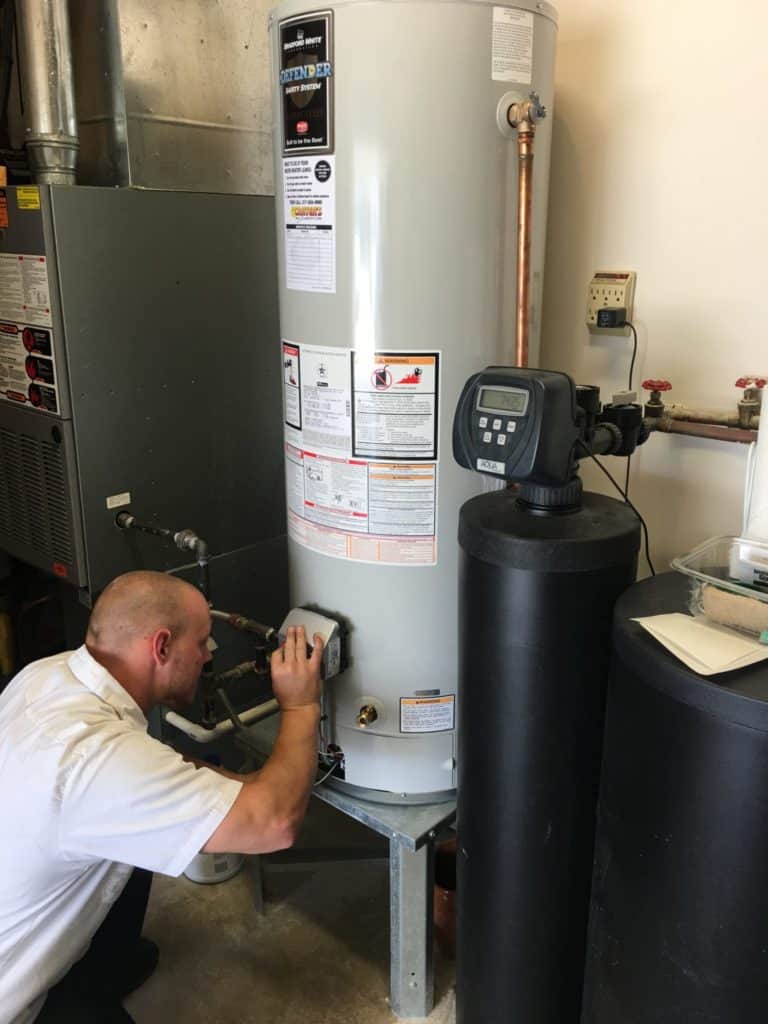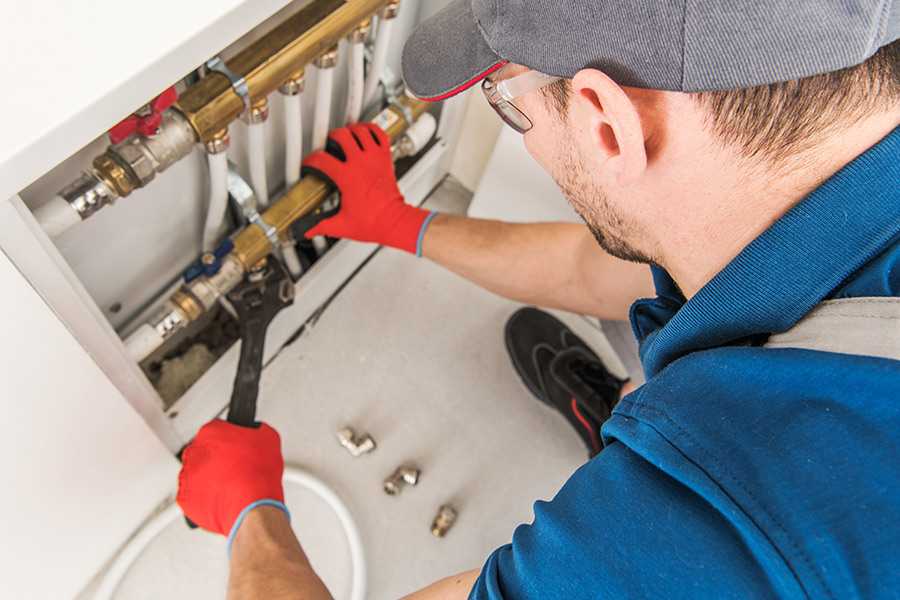Handling the Usual Hot Water Heater Emergency Challenges
Handling the Usual Hot Water Heater Emergency Challenges
Blog Article
Each person seems to have their unique conception involving Common Hot Water Heater Problems.

A water heater is one of the most vital fundamental appliances that can be found in a house. With water heaters, you don't need to undergo the tension of home heating water manually whenever there is a requirement to take a bath, wash, or the recipes. Nevertheless, there is always an opportunity that your hot water heater would break down just like many mechanical devices.
It is necessary to keep in mind any type of little malfunction and also tackle it promptly prior to things leave hand. A lot of times, your water heater begins to malfunction when there is an accumulation of sediments as a result of continual use. As a safety measure, periodic flushing of your hot water heater is suggested to stop sediment build-up as well as prevent practical failing.
Typical hot water heater emergencies and exactly how to take care of them
Too little warm water
It might be that the water heating system can not support the warm water need for your apartment or condo. You could update your water heating unit to one with a larger ability.
Changing water temperature.
Your hot water heater could begin producing water of various temperature levels normally ice cold or hot warm. In this scenario, the first thing you do is to make sure that the temperature level is set to the preferred degree. If after doing this, the water temperature keeps altering throughout showers or various other activities, you might have a malfunctioning thermostat. There could be a need to replace either the thermostat or the heating system of your hot water heater.
Leaky hot water heater storage tank.
In this circumstance, you ought to turn off your water heater, permit it to cool down, and also very carefully look for the source of the issue. At times, all you require to do is to tighten a couple of screws or pipeline connections in cases of minor leakages. If this does not work as well as the leak continues, you might require to employ the services of a service technician for an appropriate replacement.
Tarnished or smelly water
You require to recognize if the problem is from the water or the tank source when this happens. If there is no amusing smell when you run cold water, then you are particular that it is your water heater that is defective. The smelly water can be caused by corrosion or the buildup of microorganisms or debris in the hot water heater container. You can try flushing out your container or changing the anode if the trouble persists as soon as you notice this. The function of the anode is to clean bacteria from your storage tank. Since the anode pole replacement calls for an extensive expertise of your water heating system, you will certainly need the help of a specialist.
Conclusion
Some house owners neglect little caution and also minor faults in their hot water heater device. This just leads to further damages and a possible total break down of your device. You ought to deal with your hot water heater mistakes as soon as they come near avoid more expenditures as well as unnecessary emergency difficulties.
With water heaters, you don't require to go via the tension of heating water by hand every time there is a requirement to take a bath, do the washing, or the dishes. It might be that the water heating unit can not support the warm water demand for your home. Your water heating unit can start generating water of different temperature levels normally ice scalding or chilly warm. If there is no amusing smell when you run cold water, then you are certain that it is your water heater that is faulty. The odiferous water can be created by corrosion or the build-up of germs or sediments in the water heater container.
What’s Wrong With My Water Heater?
Not Enough Hot Water
You probably encounter this problem in the shower or while washing dishes. As you run your water, you’ll notice it starting to cool down. Turning up the hot faucet may not work, or it may only heat the water for a short period. Your hot water probably comes back and works normally one or two hours after you use it up.
If you’ve never had enough hot water, your heater may be too small for your home. If you haven’t had a problem until recently, there’s probably something’s wrong with your heater’s thermostat. Try adjusting it to see if you can feel a difference. Even if the thermostat’s working, the heating element itself could have burnt out. It’s also possible that a clog has restricted water flow into or out of the heater. Luckily, none of these problems are hard to fix, as long as you call them in early.
Water is Too Hot
Unregulated water heaters can make water dangerously hot. You probably have this problem if you’ve been scalded by your hot water. It’s also a likely culprit if you have trouble getting your faucets to produce a comfortable temperature. This problem is easy to fix, but it can also be a serious health hazard if you don’t address it. If you think your water is too hot, don’t doubt yourself; look into it!
Start by finding your heater’s thermostat and mark its position with a pen. Turn the thermostat to a cooler setting. Wait a couple hours to see if the problem is solved. If it isn’t, listen for boiling in the tank and look for water that comes out of the faucet steaming. In those cases, your temperature-pressure relief valve may be malfunctioning. This is a serious problem that can be dangerous, so you should have it looked at right away.
Discolored or Smelly Water
If all your water looks rusty or smells weird, there’s probably a problem with your pipes. If only your hot water looks weird, however, your water heater is probably at fault. Hot water discoloration comes in several varieties. It could look orange or brown-ish, taste rusty, or feel grainy. It could also look yellow or green-ish and taste gross or feel slimy. Either way, it’s a sign that there’s something wrong with your water heater’s tank.
Usually, hot water discoloration means sediment has built up in your tank. Sediment is made up of hardened minerals that accumulate on the inside of the water heater’s walls. When enough sediment builds up, it causes all kinds of problems–including your discolored water. Try flushing your water heater tank to clean out built up sediment. If the water still tastes rusty, your tank’s rust-preventing anode rod may have worn out. A pro can replace an anode rod easily, but without one, your tank could rust beyond repair relatively quickly.
Leaking
Water heaters can leak from several different places, and each leak means something different. If the leak is coming from a pipe above the heater, it’s possible the tank itself hasn’t been compromised. The cold inlet, hot outlet, and T&P pipes could all leak from above. Try tightening the problematic valve. If that doesn’t work, then the valve or pipe will have to be replaced.
If the leak is coming from the bottom of the tank, it’s important to determine exactly where it is. The leak could be coming out of the drain valve or your T&P valve below the tank. You can replace those valves and preserve the tank itself. If you notice the water tank itself leaking, however, that probably means it’s corroded beyond the point-of-no-return. Leaking water heaters are a big deal, so you should get yours replaced ASAP.
https://www.punctualplumberdallas.com/blog/whats-wrong-water-heater/

I was shown that write-up about Warning Signs You Need Water Heater Repairs from someone on our other web address. I beg you take the time to distribute this post if you enjoyed reading it. Thanks so much for your time invested reading it.
Professional-grade solutions. Report this page